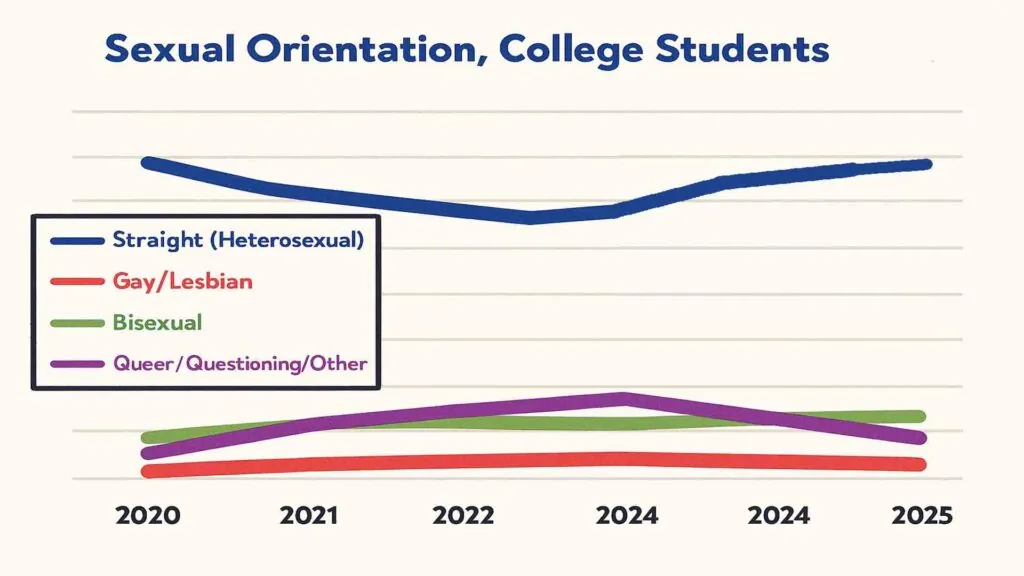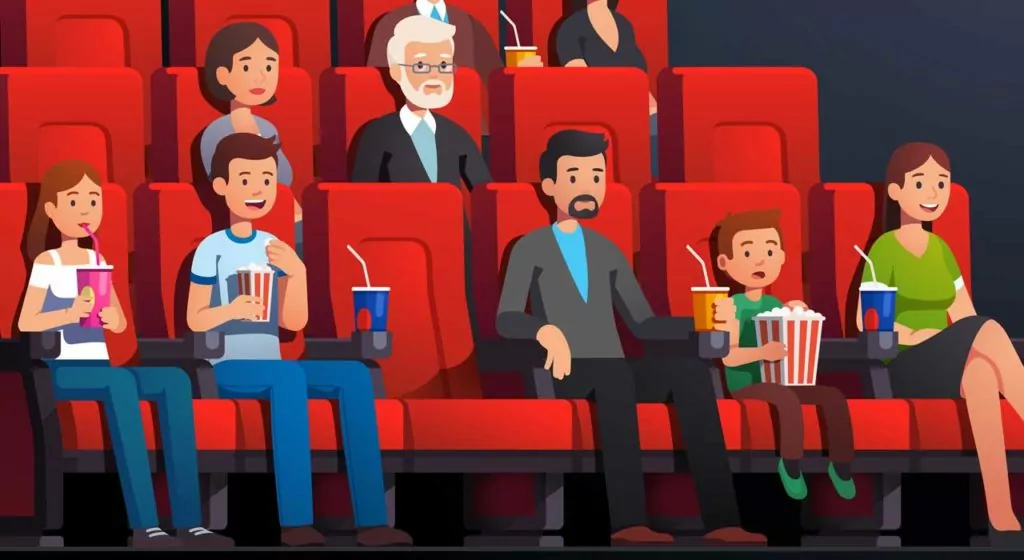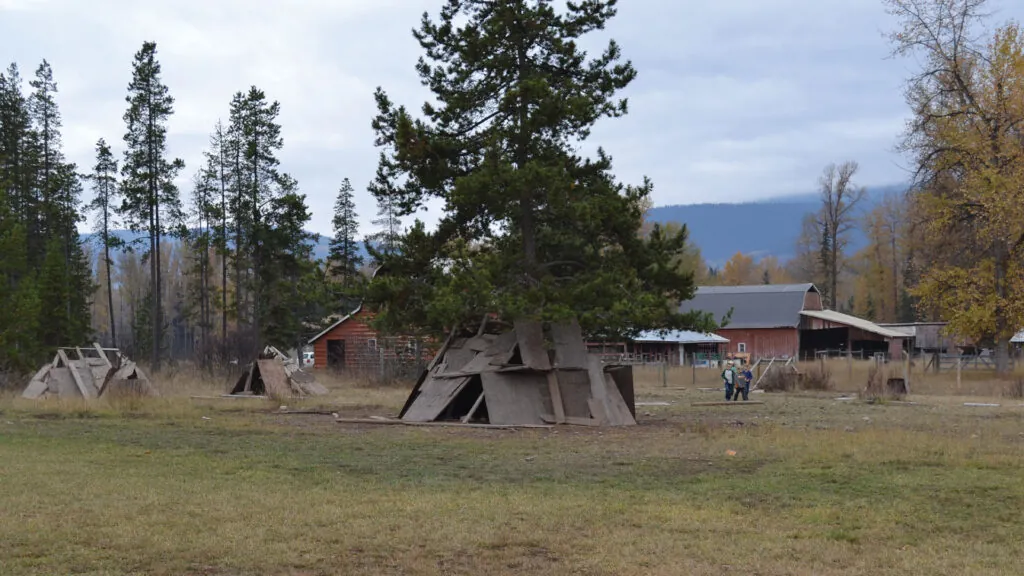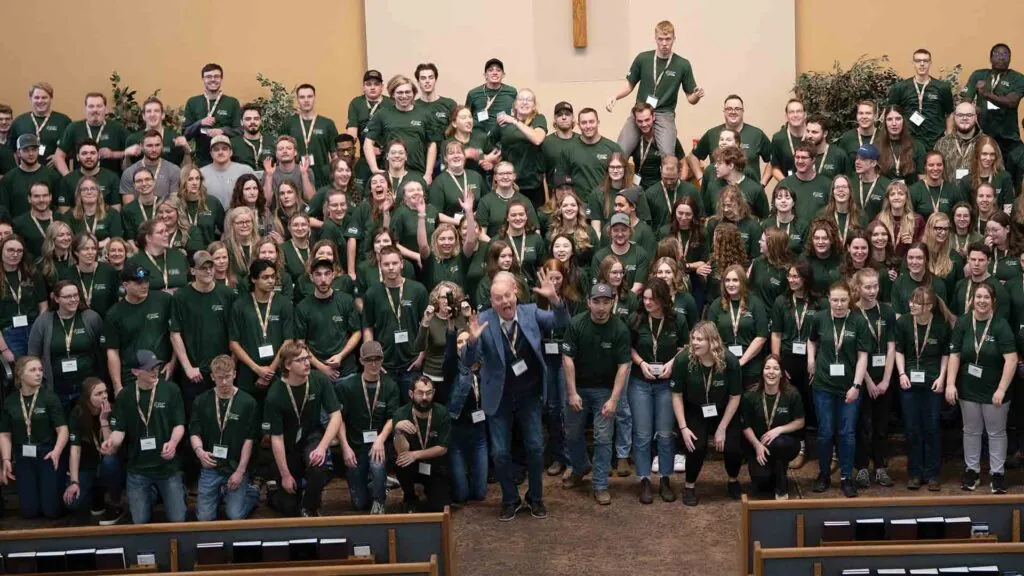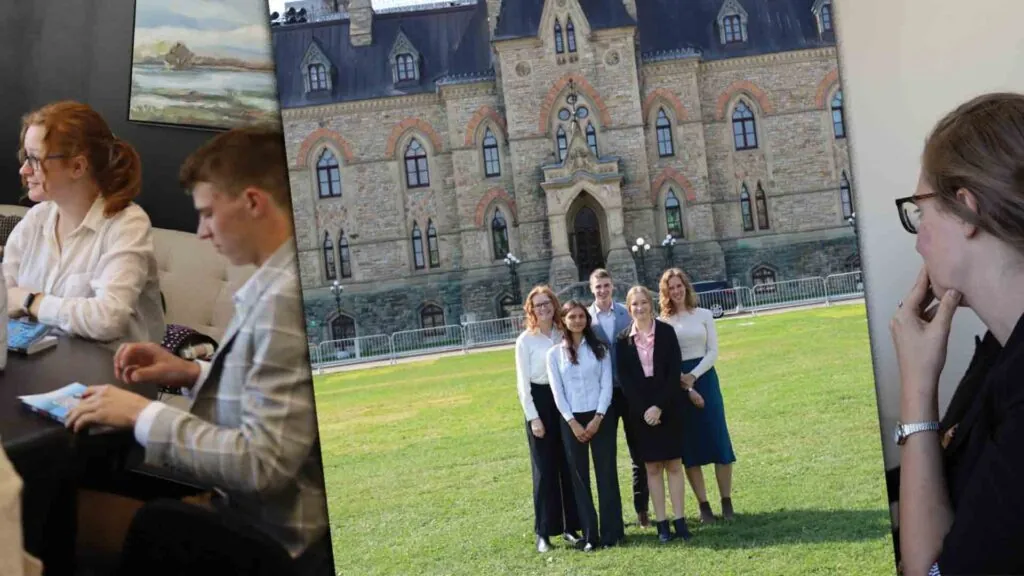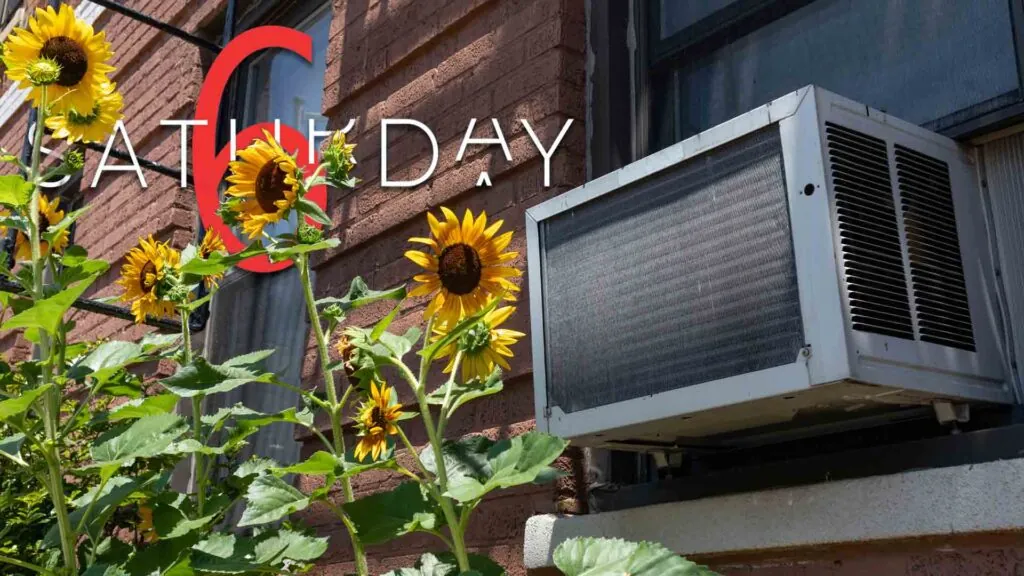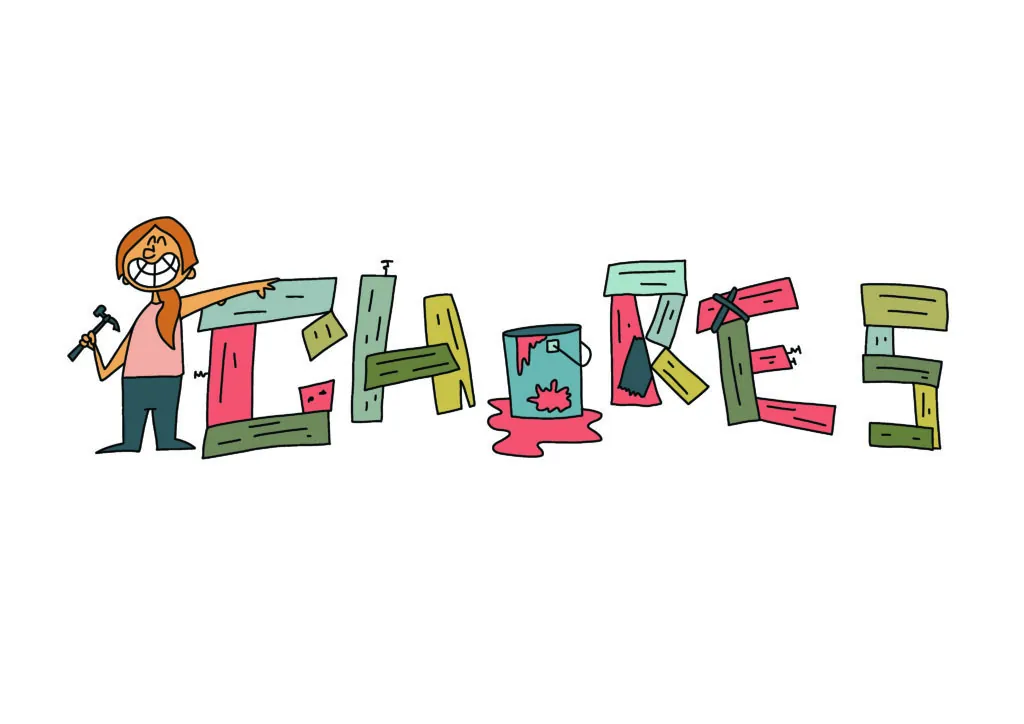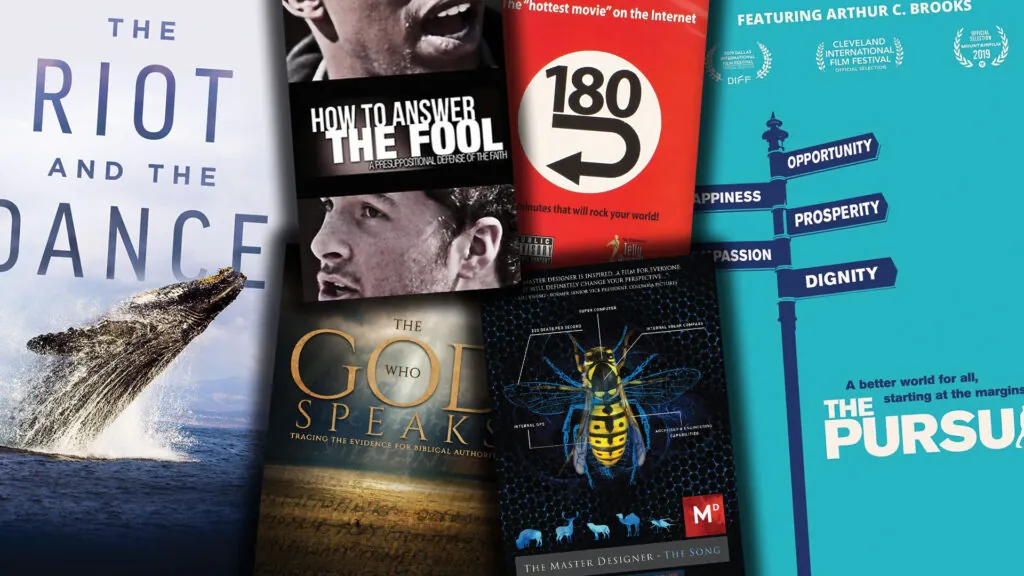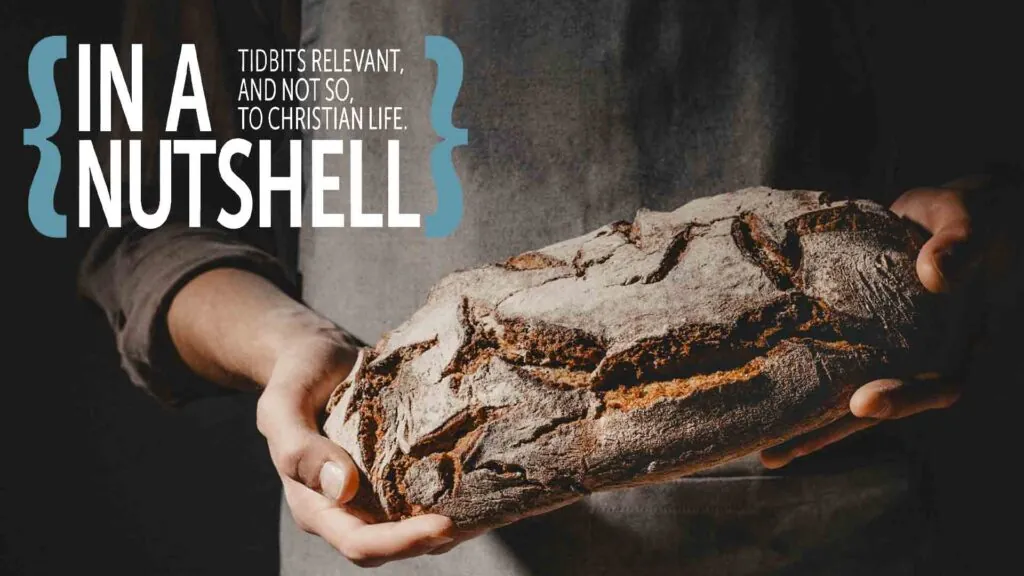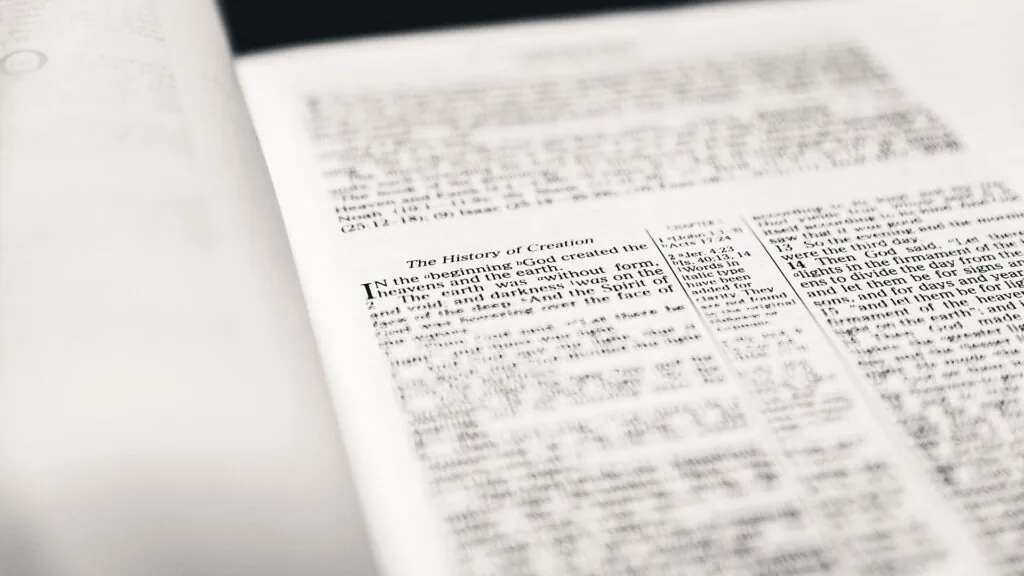The importance of risky play
“Make sure you're home by suppertime... and don't get your feet wet!” Mom called out as my brother and I hurried to our bikes. We were about 9 and 11 years old at the time.
“Have you got the matches?” I asked.
“Yes,” he said, patting his pocket and jumping on his hand-me-down bike. Our plan was to use the matches to light birch-bark torches so we could see properly inside the cave we wanted to explore. It was pitch black in there, and last time the battery in our old flashlight had died right away.
To get to Kelly's Cave we first had to cross the multiple sets of train tracks that were two blocks from our house. But this time out, a long train of coal cars blocked the way. Thankfully they were just coming to a halt, so we waited until they stopped, then glanced up and down the tracks looking for any adults, and quickly crawled under the middle of one of the cars, dragging our bikes behind us. We knew that it took a long time for railcars to start moving after coming to a standstill, and we’d have plenty of time to scramble out if they did begin going again.
Biking briskly down the service road, then veering off onto the old trail at the base of the mountain, we soon arrived at the bottom of a pile of loose rocks that had been carved out about 70 years earlier to form the cave. Before we scrambled 100 feet up the steep slope that led to the entrance, we first found a nearby birch tree and stripped off several sections of bark, then broke off some branches. Arriving at the cave’s mouth we wrapped the bark around the end of our sticks and pulled out the matches. When the bark was lit it curled tightly, allowing it to burn slowly and steadily, while giving off a wonderful aroma.
Quickly, we moved to the end of the first 25-foot stretch of tunnel, where the daylight still reached. Then we turned right, keeping our heads down, looking at the ground ahead of us; soon we came to the pack rat’s nest of shredded paper and random objects we’d seen last time. I’d spotted a ball-peen hammer in the mess and really wanted it, but I was convinced that, should there be an angry and cornered rat in there too, he was liable to jump for, and bite at, my throat. So, I worked up my courage, shielded my neck with my hand, and then lunged for the hammer – thankfully this time the nest seemed empty, so I came away with a great prize which I could proudly take home!
Then we continued on, shuffling along deeper into the mountain. It was very cold and damp, and the only sound was the crackle of our torches and the steady dripping of water hitting the cave floor. We were very careful not to brush the walls since we'd once seen a large clump of spiders clinging onto them.
Our dad, who’d been in the cave with us before, had warned us about a water-filled pit further in, so we moved slowly and carefully, and we soon saw some logs and branches which spanned an ominous pool, which was who knew how deep? After testing the strength of this wooden span, we slowly crept across, imagining a bottomless crevice filled with icy water. A few years later I learned that it was only about two or three feet deep, but at the time we assumed it was bottomless – better to be safe than sorry!
Our torches were burning down, so we pushed ahead, promising ourselves we’d turn around shortly, since we didn't want to end up stranded in the pitch dark! Soon enough, there it was – the end of the tunnel. We’d made it!
Somewhat disappointed that there wasn't a treasure chest or other artifact (I was reading The Hardy Boys and The Three Investigators books at the time!), we shuffled quickly, but carefully, back the way we’d come... over the bridge, around the corner, past the nest, one more 90° turn, and then we could see daylight. We emerged just as our torches were flickering out – we’d finally made it out again! Thrilled at our conquest, we slid down the scree slope (this is why we always changed into play clothes after school), discarded our torches (making sure they were completely out so, as not to start a forest fire), and pedaled down along the trail, elated and ready for another adventure.
So much to explore
The author zipping around in his younger years.
We knew this forested area well, having spent many hours exploring and playing in the bush, and near the tracks. Over here was where we’d spent many days chopping small trees down with a hatchet, attempting to make a log cabin. We learned that this was harder than Farley Mowat’s books made it seem, and we often came home tired, and with scrapes or bruises. Once, when we were pushing over dead trees, a top snapped off and smashed to the ground right beside us – a close call!
Farther down the trail was the site of the old ski jump where you could still see some outdoor lights attached to trees. In the winter many hours were spent climbing up this hill, and sliding down on inner tubes, toboggans, and even a homemade sled.
A few hundred yards off in another direction was an old dump site where we had explored and found many rusty objects, and well down the other way was a railway siding where we could clamber into boxcars and pretend we were hobos. Halfway between, under that one spruce tree, was where our dad had shot a grouse with his old .410 shotgun. His catch motivated us to try to go after grouse too, or rabbits, using our homemade bows and arrows or slingshots, but without any success (although my Boy Scout manual did explain how to snare rabbits, so that was a plan for later in the fall).
During those childhood years we spent many hours roaming, playing, and trying not to get hurt or get wet feet in those forests, trails, and caves. On other days we biked around town, explored the alleys and dumpsters behind businesses, looking for treasures, and collecting cans and bottles to exchange for quarters which we quickly spent in the arcade games in the back of the seedier stores. We rubbed shoulders with the local youth in these places and even had to turn down the offer of drugs because we knew that they were bad for us.
But what about…
Maybe you’re wondering, “What about the risks and dangers?” Yes, we got plenty of minor injuries and had some close calls and moments of genuine fear, but these became excellent learning opportunities and helped us grow in confidence and wisdom. Also, we were very aware of the consequences of foolish actions, and knew that recklessness, and endangering ourselves, was wrong.
However, there is a big difference between fun adventures and recklessness, and a kid can do some exciting and even foolish things without crossing this line. Kids learn from the direct instructions of their parents, by watching others, and from reading about or experiencing the consequences of dangerous or reckless choices. They learn quickly from their own mistakes and accidents, and will develop a strong sense of self-preservation. Thankfully, rarely do minor childhood mishaps have serious consequences (and let’s not forget that “safe” and sedentary lifestyles comes with their own health hazards!). By learning to manage the risks and cope with the results, our kids can increasingly be empowered to make good decisions, and to take care of themselves.
The reality is, Mom and Dad only vaguely knew where we were when we went out on our adventures, but they trusted and prayed that we wouldn't do anything foolish, dangerous, or illegal. Besides, they were very busy working, and looking after the younger siblings, and they didn’t live in constant fear of the world or other people. They also modeled an outdoor playful lifestyle (including taking risks), and encouraged us to get outside and entertain ourselves. Over time, these factors fostered confidence and bravery in us, while still showing us that recklessness was both wrong and foolish.
For example, my dad was actively involved in my late-November childhood birthday parties, taking my classmates and me on hikes, exploring and making fires, and crafting equipment like slingshots or bows and arrows, and doing all of this despite the snow and the darkness that came early in northern BC.
When the climate or other factors discouraged outdoor play and adventure, we would busy ourselves with indoor forts, Meccano, electronics kits, and reading. Oh, the books we devoured by the hundreds! We were going on adventures with the Bobbsey Twins, Tom Swift, Wambu, Scout, and many others. Their exploits were recreated in our imaginations, as we pictured ourselves with them in the jungle, desert, tundra, or under the sea. Our knowledge and understanding of the world, and of people, broadened, and our worldview solidified as we incorporated these stories and experiences with the Christian perspective with which we were raised. Many lessons were also learned about safety, and taking risks, as we experienced, vicariously, the exciting exploits of the books’ characters – lessons that were often useful and realistic, thus also helping to prepare us for life in the real world.
Tech takeover
Screens and technology were lurking on the horizon though, already way back then in the 1980s. As the decade progressed, more and more parents would rent a VCR and videos to entertain the kids at birthday parties. It was so much easier, less messy and tiring, and sure kept the partygoers happy. Within a few years we had a Commodore 64 computer in our home, and by the time we were adolescents many hours had been spent on Test Drive (1!), Winter Olympics, and other games. Our play-based childhood was being affected by screens, and in the next decades this transition only accelerated for others in my age group. Thankfully we all had a solid grounding in the outdoors, and TV and technology were still regarded with suspicion by the older generation. However, as the years and decades have passed, the temptation to spend time on screens has only increased.
There are other dangers…
Three of the Penninga boys up on Hudson Bay Mountain.
So, how much do these childhood experiences matter? And what’s been the cost for the children who are not allowed to explore and have adventures, and who spend way more time on screens than reading? No doubt these kids are a lot safer physically (and cleaner!), and parents probably worry less, as their children are shuffled between adult-supervised activities like after-school programs and sports, or are quietly gaming, or scrolling through social media on their phones. Does this trend towards supervision and screens have significance?
According to lots of careful research it has become very clear that the cost of replacing a play-based childhood with a screens-based one has been enormous, especially on kids’ mental and emotional well-being. In his book, The Anxious Generation - How the Great Rewiring of Childhood is Causing an Epidemic of Mental Illness, Jonathan Haidt makes just that case.
Its first section outlines the impact smartphones and social media have had on children and adolescents in the last 15 years. Data conclusively shows that rates of anxiety and depression have greatly increased (depression for girls rose 145% between 2010 and 2020; for boys 161%), as have suicide rates and visits to ERs for self-harm. These destructive trends occurred across many different countries around the world, and correlate directly to growing up with smartphones. Haidt’s theses are backed up by data that is both scholarly and current.
While the author has evolutionary, atheist presuppositions, his book is still an excellent research-based overview of the damage that Internet-enabled devices (especially smartphones) have done to the Millennial and Gen Z generations.
Thankfully, Haidt also addresses what can be done about it all. He points to play, the sort that is unsupervised and unstructured and has elements of genuine risk – the kind of play that most kids all around the world naturally engaged in prior to the recent explosion of fears and screens. According to Haidt:
“Unsupervised outdoor play teaches children how to handle risks and challenges of many kinds. By building physical, psychological and social competence, it gives kids confidence that they can face new situations, which is an inoculation against anxiety... a healthy human childhood with a lot of autonomy and unsupervised play in the real world sets children's brains to operate mostly in ‘discovery’ mode with a well-developed attachment system and an ability to handle the risks of daily life. Conversely, when there is society-wide pressure on parents to adopt modern overprotective parenting, it sets children's brains to operate mostly in ‘defend’ mode with less secure attachment and reduced ability to evaluate or handle risk.”
He goes on to explain how being in discovery mode means you are curious and excited about life, and eager to explore and move ahead. Those who operate in defend mode are careful and suspicious, and
“tend to see new situations, people and ideas as potential threats, rather than as opportunities... being stuck in defend mode is an obstacle to learning and growth in the physically safe environments that surround most children today.”
A play-based childhood, Haidt argues, encourages the positive discovery mode while a screen-based one promotes a more fragile and restrictive defend mode. Overprotective parents, trying to guard their children from risks and conflicts, actually harm their kids who need to experience thrills, fear, and conflict to learn how to manage it in the real world. Children are thrill-seekers who need adventures and risks to overcome their fears and develop resilience.
How does Haidt stack up against the Bible?
This rings true because it lines up with Biblical principles.
For example, in Proverbs 28:1 it says, “The wicked flee when no one pursues, but the righteous are bold as a lion.” King David trusted in God to protect him, and, consequently, took on bears and giants with confidence.
Meanwhile, in the list of curses for covenant disobedience God says “…those who hate you will rule over you, and you will flee even when no one is pursuing you” (Lev. 26:17b).
Godly leaders need to be brave to stand up against threats and deal with challenges. For example, God tells Joshua, “Be strong and courageous. Do not be terrified: do not be discouraged, for the LORD your God will be with you wherever you go” (Joshua 1:9). In the knowledge of God’s providence, we can face life and the future without fear and can be confident that nothing will separate us from His love since nothing happens by chance (Lord’s Day 10). Since our eternal future is secure, and we can trust that God will be with us, we do not need to live in fear of catastrophe or death like the unbelievers do. Yes, bad things do happen in a fallen world, and we need to accept that sometimes, even with abundant caution and care, people will get hurt or even die in accidents. But this should not scare us or make us elevate safety to the status of an idol, thinking that somehow we can control everything. If we love the Lord and live according to His will, we can trust that He will provide and care for us, and gives us what we need to face life’s challenges and dangers with confidence. As those who live with a view to eternity, our spiritual health should be our main concern (1 Tim. 4:8). We must live in fear of God, who controls our eternal destiny, and not of man (Luke 12:4-5). Recklessness and foolish behavior is an evil on one end of the spectrum, but living in constant fear of injury or death, and thinking we can control everything also is sinful. The balanced Christian life lies somewhere in the middle.
What does this sort of play look like?
So, what does this beneficial play look like? It usually happens outdoors when there is free choice, and not when supervised or structured by adults. Researchers have found that play needs to be thrilling and exciting with a real risk of physical injury and an element of uncertainty (think merry-go-rounds, exploring forests, and bike jumps!). Six factors characterize this kind of play:
1. heights (climbing, trampolines, haylofts);
2. high speeds (sledding, swings, racing down hills);
3. dangerous tools (axes, saws, knives);
4. dangerous elements (waves, fire, ice);
5. rough and tumble play (wrestling, tackling, “king-of-the-hill”); and
6. disappearing (hiding, exploring and wandering, not fully knowing where you are).
Roller coasters, zip lines, and other thrill rides are a good example of combinations of these things. Kids need, and seek out, these factors but too often parents, teachers, and other adults try to deter them. The adults are overly afraid of injuries, abductions, or lawsuits, and treat even minor scrapes and bruises as akin to serious harm. Many adults have an unrealistic sense of danger and are too overprotective, and they don't trust other adults to intervene, or don’t trust their kids to know their own limits. A growing culture of litigation, insurance, and well-meaning but harmful “safety police” work together to counter these important parts of childhood play.
In the August 11, 2025 entry on the After Babel Substack, Haidt and his two co-authors of “What Kids Told Us About How to Get Them Off Their Phones” wrote:
“Since the 1980s, parents have grown more and more afraid that unsupervised time will expose their kids to physical or emotional harm. In another recent Harris Poll, we asked parents what they thought would happen if two 10-year-olds played in a local park without adults around. Sixty percent thought the children would likely get injured. Half thought they would likely get abducted. These intuitions don’t even begin to resemble reality. According to Warwick Cairns, the author of How to Live Dangerously, kidnapping in the United States is so rare that a child would have to be outside unsupervised for, on average, 750,000 years before being snatched by a stranger. Parents know their neighborhoods best, of course, and should assess them carefully. But the tendency to overestimate risk comes with its own danger. Without real-world freedom, children don’t get the chance to develop competence, confidence, and the ability to solve everyday problems. Indeed, independence and unsupervised play are associated with positive mental-health outcomes.”
Children who were raised on screens need more freedom out in the real world.
Organized sports have their own dangers
Unstructured and risky outdoor play is actually safer for kids, with fewer injuries per hour, than participating in adult-guided sports teams, according to play researcher Mariana Brussoni of the University of BC.
Unstructured and unsupervised physical play also has more developmental benefits for the children since these kids
“must make all the choices, set and enforce rules, and resolve all disputes. Brussoni is on a campaign to encourage risky outdoor play because in the long run it produces the healthiest children” (Haidt, writing in The Anxious Generation).
In their paper “What is the Relationship between Risky Outdoor Play and Health in Children? A Systematic Review” published in the International Journal of Environmental Research and Public Health, Brussoni and her co-authors found that risky play had overall health benefits for children aged 3-12.
“Specifically, play where children can disappear/get lost and risky play supportive environments were positively associated with physical activity and social health, and negatively associated with sedentary behaviour… There was also an indication that risky play supportive environments promoted increased play time, social interactions, creativity and resilience. These positive results reflect the importance of supporting children’s risky outdoor play opportunities as a means of promoting children’s health and active lifestyles.”
As an example, despite my adventurous childhood, I only ended up in the local hospital once for an injury, and that was a broken foot I got in an indoor-soccer PE class at school!
One of the main messages of these books? Put away the screens and kick your kids outdoors!
A sudden shift
In general, children born before 1980 were much more likely to grow up engaging in risky play and were allowed and encouraged to roam out and about, away from parents, by age 7 or so. Kids had more freedom to walk to school, play with neighbor children, get into and resolve conflicts, and generally have a more exploratory lifestyle.
But, as Haidt details, in the following decades parenting became more intensive, protective, and fearful, resulting in kids who were more sheltered, coddled, and unable to roam freely until much older (age 10 or 12). Safety became paramount, as a fear of strangers, abductions, injuries, and death, skyrocketed. At the same time, technologies like computer games, DVDs, and phones made it much easier to keep kids from playing and exploring. Haidt goes on to provide other reasons why this change occurred, including more intensive parenting, more supervised and structured sports and programs for kids, and a renewed focus on academics.
When it rains in the world, drips are felt in the Church
As is often the case, Christian parents are swept up in these changes and can too easily accept them without thinking critically about the disadvantages. After all, isn’t it better to be safer? To provide more structured and supervised activities for the kids? To supply a tablet or phone to keep them quiet? And do we speak out when the merry-go-rounds disappear from the playground and are replaced by much safer (and more boring) equipment? Do we read books or articles that feature research about factors that affect our children?
For example, a very good book that addresses many current challenges to parenting came out in 2019 entitled Gist: The Essence of Raising Life-Ready Kids. It was by child psychologist Michael W. Anderson and pediatrician, and the book was featured as a Focus on the Family Resource. This very practical manual discourages parents from always trying to protect and control everything, and it encourages them to back off and let their kids sort out way more of their own problems. In this sin-tainted world life is full of challenges, difficulties, and disappointments, and children need to learn how to face and overcome these to prepare them for managing in adulthood. Although the book is not overtly Christian, Gist is clearly grounded in Scriptural principles and displays a nice balance between truth and grace. It’s the kind of book I wish would have been available sooner, so I could have read it when my children were small!
What’s to be done?
The final section of Haidt’s book provides many more examples of what schools, parents, and governments can do to promote a return to a play-based childhood, and a turn away from a screen-based one. Several of these ideas are already being implemented, such as more rugged playgrounds, and banning phones in schools. It seems that the pendulum is swinging back towards a healthier balance again, from the safety paranoia, and excessive screen time, back to how it was more in previous decades.
Conclusion
God’s people do not need to live in fear, since we know we have a Father in heaven who watches over us and protects us. As it says in Proverbs 1:33, “whoever listens to me will dwell secure and will be at ease, without dread of disaster.”
We must also heed what the Bible teaches about this topic, as it is found in the Sixth Commandment where we are told “you shall not murder.” In Lord’s Day 40 of the Heidelberg Catechism, it explains that this commandment means we are not to “injure my neighbor, personally or through another… or harm or recklessly endanger myself” and we must “protect our neighbor from harm as much as we can.” To takes risks is different than being reckless.
Also, Proverbs 27:12 tells us, “The prudent sees danger and hides himself, but the simple go on and suffer for it.” We need to use or heads.
Since his childhood adventures, Kelly’s Cave has been all boarded up.
And let’s consider also the Fifth Commandment, where we are taught that authority needs to be obeyed, like wearing seat belts and bike helmets, and not trespassing (including on railways!). But we also need to speak out against and resist the multiplication of safety rules imposed by overly-zealous authorities and companies. As an example, the entrance to Kelly’s Cave was blocked by a thick cement wall in the late 1980’s (as were other caves around here), closing another door to adventure.
Of course, many children do not live near forests, caves, or railway tracks, or attend schools that have any forest or brush land. Families are smaller and there don’t tend to be packs of kids roaming around outside together. Still, there are many things that can be done to encourage healthy play: parents need to model fun and adventurous behaviour, screens need to be avoided or severely limited, and it’s helpful to have spaces where kids can explore and which contain materials they can use.
It can start small with pillow and blanket forts inside, wooden blocks and other basic items for toys, trips to nearby parks or bush areas. But then parents need to be brave and begin to pull back from constant supervision and intervention and let the children explore and figure things out for themselves. It’s also important to understand that the world is not nearly as dangerous a place as the media suggests (yet another reason to avoid too much media), and that disallowing adventurous and risky play comes with very serious negative consequences (anxious teens and young people who struggle to cope with the demands of adulthood). So set a good example by confidently getting out into the yard or neighborhood and finding adventure and fun! It takes more effort but is far better for you and makes better memories, too! Be wise and discerning but not fearful, and remember that we have a Father in heaven who watches over us and blesses us, also as we seek to do what is best for our children....









